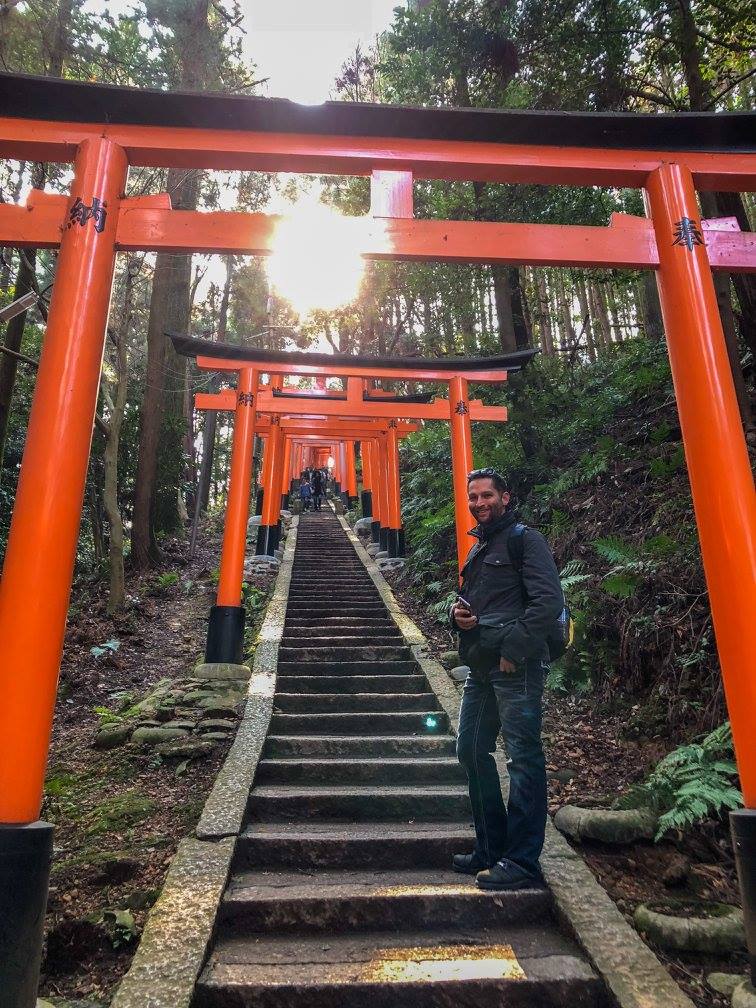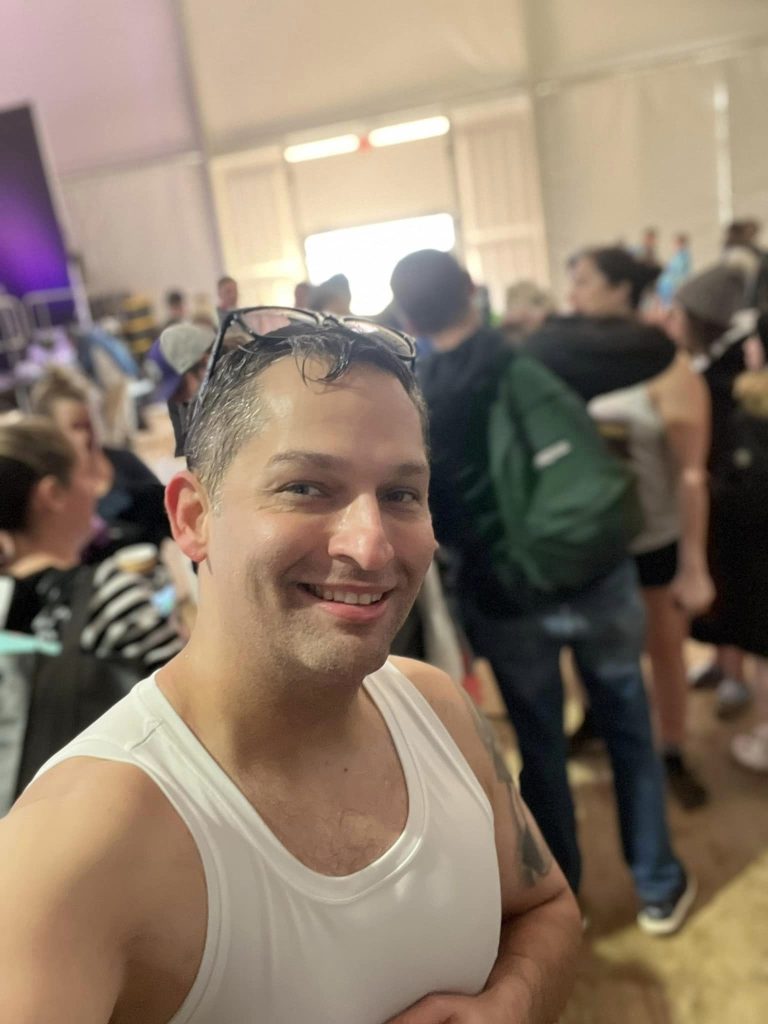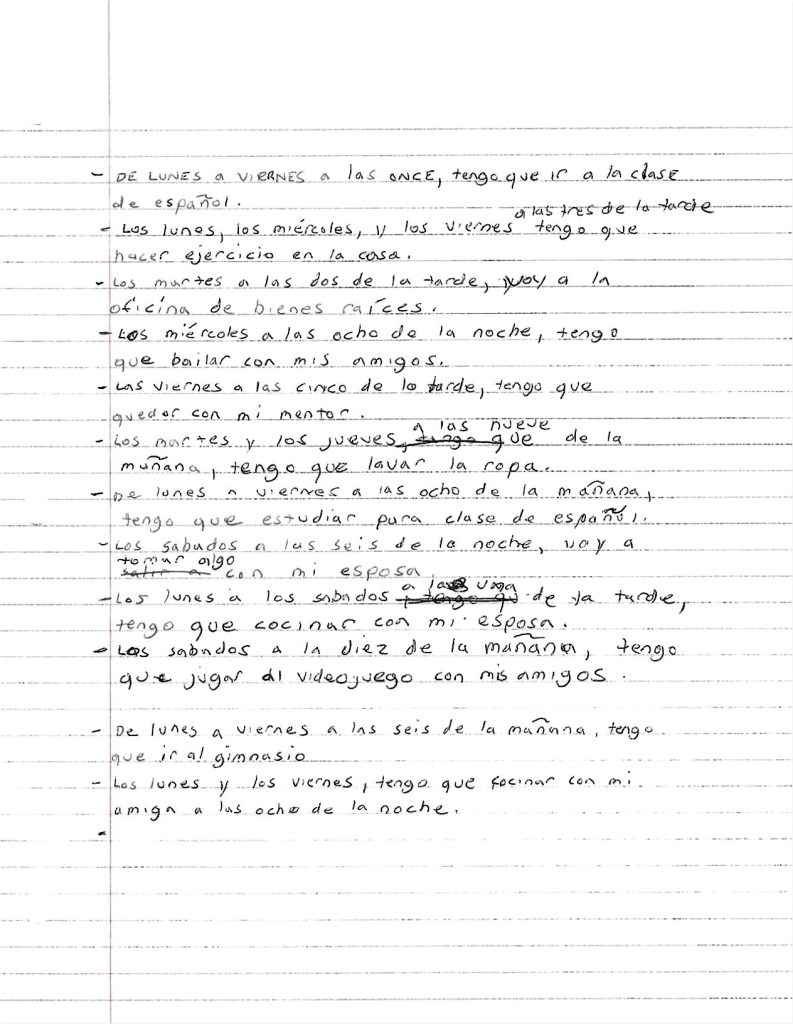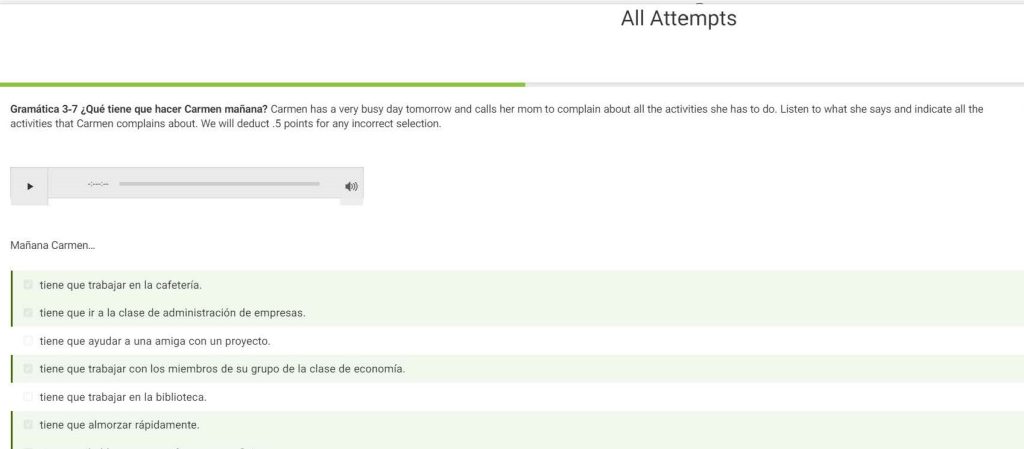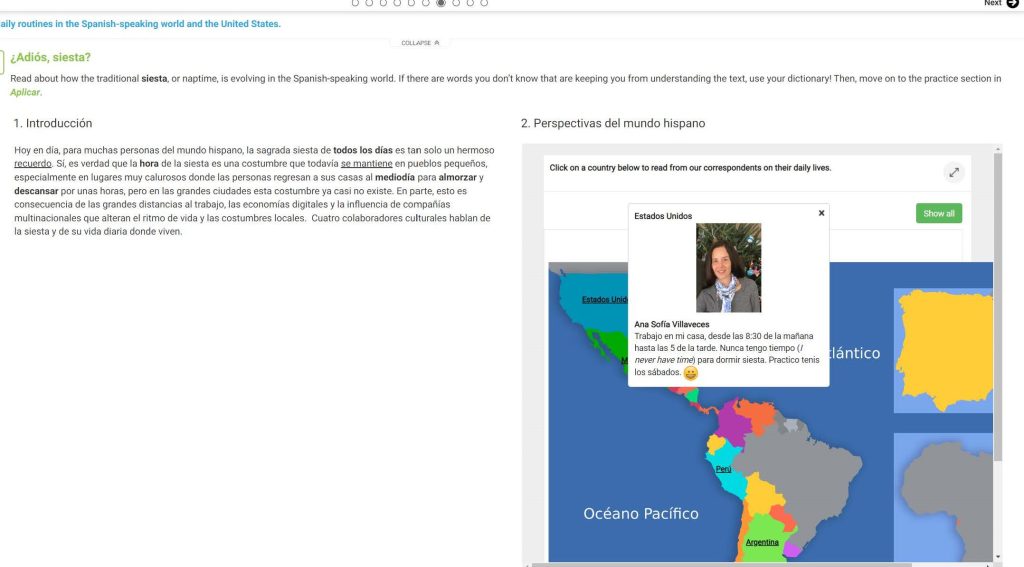Interpretive, Interpersonal, and Presentational Modes of Communication
Exploring Culture
The exercises that helped me to have a better understanding of cultural perspectives of those in Spanish-speaking countries were the Exploración Cultural sections throughout the LingroLearning course of study. Within these sections, students were given the cultural perspective on different topics and concepts we learned about, offering us a differing view than what we may be used to.
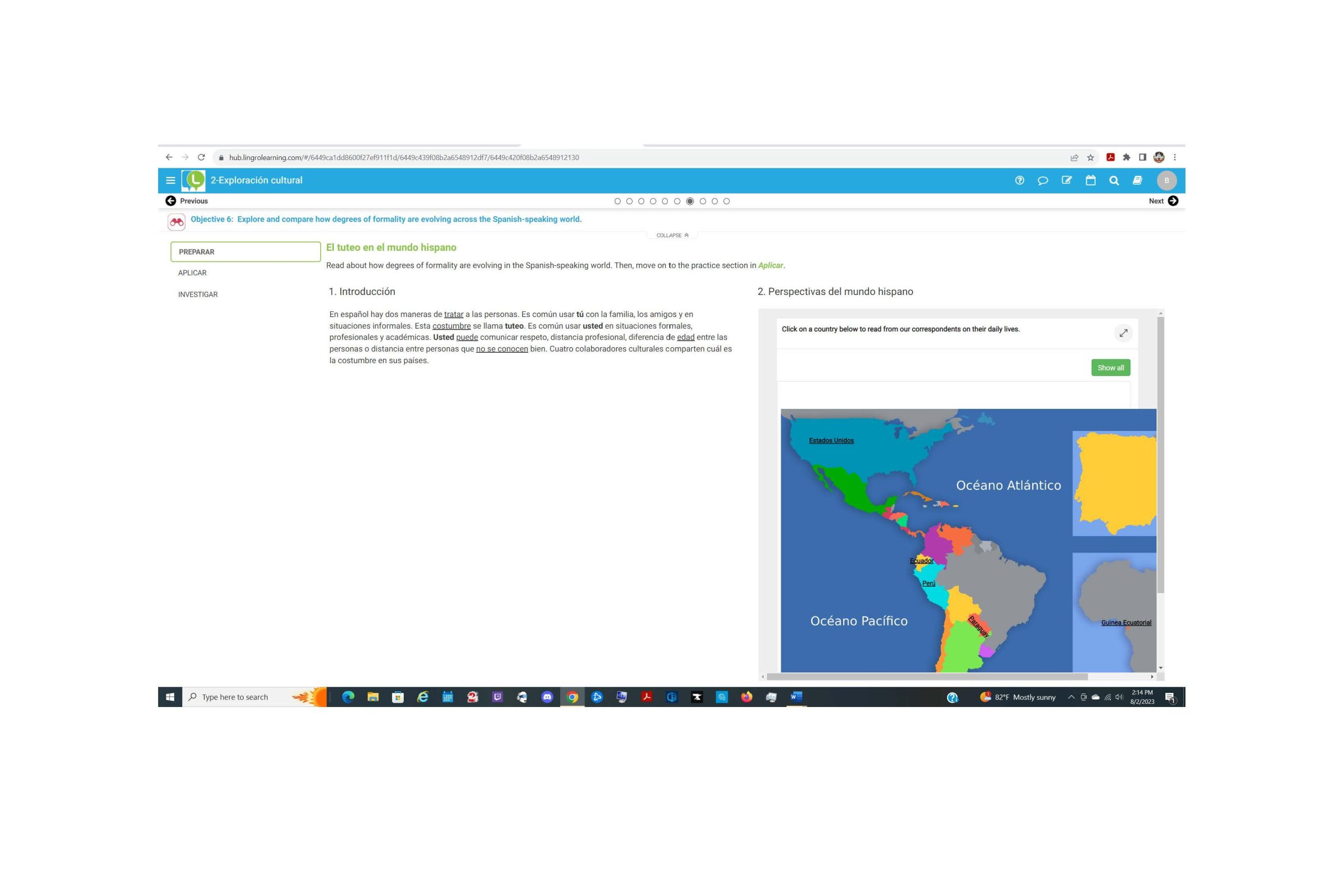
Because I am retired from the military, I consider myself a true world traveler. I have had the opportunity to explore many different countries and experience different cultures throughout my life. One thing I was always taught was to respect other cultures, even if it is different than my own. Because of this, I am always open-minded and understanding of different customs, and a lot of stereotypes I may have had about other countries were wiped away early in my life.
With that, I can say that the things we learned in class didn’t surprise me. However, I do feel like it is a true glimpse as to how a few concepts, like where college students live in other countries versus the US, are different and help to give students a differing perspective.
Engaging in Communities
I believe that it is very important to engage in the community. When you leave America and see other countries, you get exposure to what poverty looks like and how that compares to poverty here at home. It is saddening to me to see the squalor that others live in, and it’s on those that have the means to help to get up and help.
I was involved with many community outreach projects while on deployments in my Naval career. It is important to spread good will and help those in need, and I appreciated that those types of things were organized when we ported in other countries. I have also continued to pitch in and help when I can. My real estate brokerage, OWN Real Estate, participated in the 2023 Polar Plunge. We collectively raised over $25,000 that went directly to funding activities for Special Olympics Virginia Athletes.
Interpersonal Communication
Throughout Spanish 101, the exercises that helped me the most were the speaking exercises. These exercises consisted of us writing down responses to questions and other activities in Spanish, then reading them out loud in class. This really broke the ice, but it also caused me to concentrate more on pronunciations and word inflections so that I can better speak Spanish.
In my opinion, these were the most challenging assignments for me, because I had to actually speak another language to people. Since I took Spanish in high school (over 20 years ago!!) I already had some foundation with a lot of the curriculum. I already knew many of the words taught, and I had a great foundation in conjugating verbs. But getting over speaking in front of other people was the most challenging to me. Even though I have had to speak in front of 100’s of people before, it didn’t compare to speaking another language in front of a handful of students. Because these assignments pushed me out of my comfort zone, they really challenged me to do it correctly.
What I took away from this personal speedbump was that all of us students were in the same boat. Speaking to others, I found out they, too, were experiencing this same anxiety. That put things into perspective for me and helped me to overcome my own misgiving. Moving forward to Spanish 102, I will challenge myself daily to get out of my comfort zone as to not hinder my own progress.
Presentational Speaking
I believe that what I wrote in the previous section applies to this section, as well. In many ways speaking to our small groups offered the same challenges that I faced when having to repeat those conversations in front of the entire class. Because the two are not much different, the solution of getting out of my own way to practice will help me better understand a new language and get over the fear of “sounding stupid.”
Presentational Writing
Many of the PROYECTOS that we were assigned throughout the course presented us with what subject to write about and we were graded on our ability to elaborate. This tested us on our comprehension of Spanish, as well as our grammatical abilities.
As we progressed through these writing projects the level of difficulty grew because each one built on the last. It really forces you to study so that you do not data dump information after successfully completing it. However, even though each test had a stacking effect they didn’t necessarily get easier. This was due to the fact that each test offered an appropriate level of difficulty for that test. Understanding how to conjugate verbs and noun-verb relationships definitely helped me to excel in these tests.
Interpretive Listening
Throughout the LingroLearning experience, we were presented with several listening exercises. Some were as simple as listening to a time and choosing the corresponding answer from a list of choices. Others were to listen to a conversation and answer questions pertaining to the recording.
The most challenging thing was the perceived speed at which the speakers were speaking. To me, it seemed very fast. It was, in fact, a good example of cadence from a Spanish-speaker. I wasn’t able to catch everything on the first listen, so I had to listen to these several times to extract the needed material. I really enjoyed these exercises because I was able to hear a real-speed conversation. It reinforced the learned material because even though there were terms included that hadn’t been taught, I was able to get the jist of the conversations to understand the context of what was being spoken. This built my confidence in that it showed me that I am learning and understanding the materials taught.
Interpretive Reading
The best example that I can think of that LingroLearning had students interpret a reading is each EXPLORACIÓN CULTURAL section. These exercises had students read a Spanish description of a concept, such as siesta, and answer questions about it.
Interpreting a reading, as in listening to a conversation, challenged me to recall everything I had learned up to that point. The advantage that I had for these reading comprehension assignments was that I could take my time to translate, unlike in the listening where I had to replay the recordings multiple times to get the information I needed. With the readings I was also able to see the words that I may not have understood, which gave me the opportunity to consult a dictionary to see what the meaning was. What I took away from these readings was that I got to learn about a concept that was different than the corresponding concept I was used to seeing here in America, as well as test my comprehension skills.
